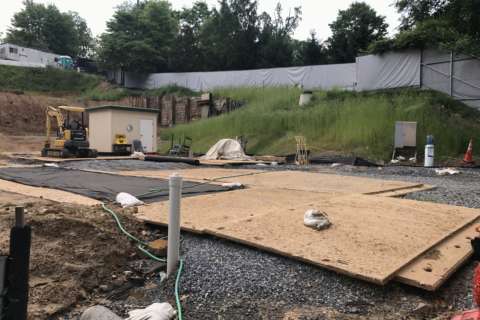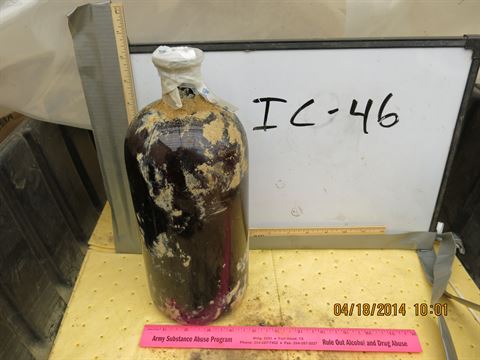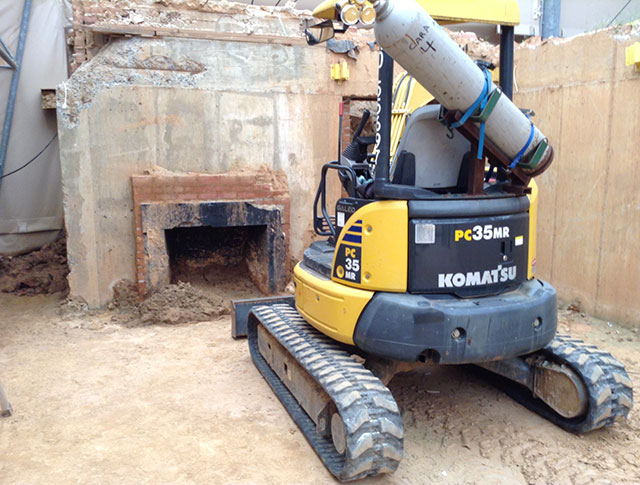WASHINGTON — Seven workers were sickened and temporarily hospitalized during the cleanup of a World War I chemical weapons testing site found under a house near American University.
WTOP has learned that digging will not resume for the foreseeable future at the Spring Valley site as an investigative board determines what agent made the workers ill, said Brenda Barber, project manager for the Army Corps of Engineers.
The cleanup focuses on the property at 4825 Glenbrook Road NW. A home that had been built on the site was removed in 2012.
The project began in 1993, when a contractor unearthed buried military ordnance on nearby 52nd Court NW. During World War I, the U.S. government researched and tested chemical agents, equipment and munitions at what was then known as the American University Experiment Station.
On Aug. 9, workers who were digging by hand experienced eye irritation, Barber said. One employee reported diarrhea, and another vomited.
Initially, the symptoms indicated a possible exposure to low levels of mustard gas. When used in functioning weapons, mustard gas can cause large blisters on skin and in lungs.
But monitoring equipment didn’t detect the agent.
“At this point, based on what we’ve seen, we don’t think it’s a mustard-related incident,” said Barber.
Barber said plastic sheeting was placed over the area where the workers had been digging, near the property’s boundary with 4835 Glenbrook. Air monitoring equipment did not indicate dangerous agents outside the excavation area.
The workers were transported to George Washington University Hospital for treatment and decontamination. All were released that evening. Since then, they have not experienced similar symptoms and have returned to work, Barber said.
“Morale is high,” she said.
Barber said a board comprised of officials from the U.S. Army Corps of Engineers, Environmental Protection Agency and the D.C. Department of Energy and Environment plus public health, industrial hygiene and technical experts are investigating what agent sickened the workers.
As WTOP reported in May, an unexpected finding of black soil laced with mustard caused a pause in the project.
The Army Corps had hoped to finish excavation this summer, with the goal of restoring the property to its current owner, American University.
Barber said the Aug. 9 incident has knocked the project off schedule.
“At this point we need to develop our return-to-work plans, so the completion date will be reliant on what the findings are,” Barber said.









